Speakers on the first of October!
The programme of the Social innovation conference: Time to Change! consists of a number of interesting keynote speeches by international speakers from the field of social innovation.
Social Innovation and Leadership in Non for Profit Organisations: a European curriculum
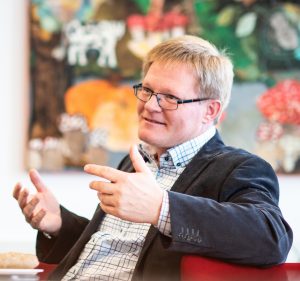
Prof. dr. Jan Riezebos – University of Groningen, The Netherlands
09:00 CET – 09:30 CET
Social organizations are essential in our modern European society, as they focus on our human wellbeing and develop sustainable social structures. They fight for inclusion, provide support, education, aid, or opportunities to participate and engage in our society. Non Governmental Organizations (NGOs) as well as companies that focus on social aims face enormous challenges in times of crises. This puts demands on the leadership of these organizations. However, formal education has not given much attention to this field and the specific problems they face. In this presentation, I will present a new European Curriculum that has been developed in the Erasmus + Learn2Inspire project for capacity building of the leadership in this type of organizations. The curriculum has been developed with partners from five European countries and addresses leadership skills as well as knowledge and skills with respect to social organizations.
Fostering change from within: building capacity in future leaders that can drive societal betterment

Lina Klemkaite – Executive Director at DRAMBLYS
09:30 CET – 10:00 CET
As today’s business landscape is increasingly influenced by the evolving pressures and preferences of consumers, regulators, and stakeholder groups, not to mention the impact of ongoing COVID-19 pandemic, there is a constant search for referents that can provide us with vision and inspiration.
The presentation aims to share insights and lessons learnt from INSPIRE and EMBRACE projects. A concept of Social Leadership will be discussed together with the concept of Corporate Social Entrepreneurship.
In addition, a currently released investigation and report “Comparative analysis of practices of corporate social entrepreneurship” will be presented. The CSE practices collected reflects existing and emerging realities in European organisations, and so, provides further insights on how CSE practices can be implemented and what kind of business leadership is necessary to push it forward.
Social Innovations as an Element of Civil Society Development
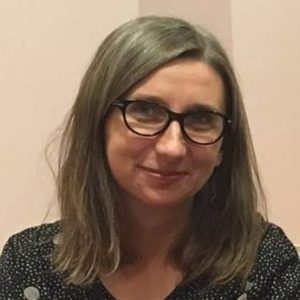
Assoc. Prof. Edyta B. Pietrzak PhD DA – Lodz University of Technology
10:00 CET – 11:00 CET
The presentation deals with the topic of social innovation, which is also a tool for building a civil society.
Already Aristotle made a distinction between mechanical behaviour and behaviour involving personal desires and decisions, which is the basis of prudent action and virtue. Manifestations of such actions are social innovations relating to the categories of change, choice, difference, option, variance, diversity or difference. The existence of innovation in the social world should be associated with such properties as heterogeneity, complexity and dynamism. This leads us to the observation that no social structure remains static, but through its complexity and dynamics, it has a chance to be an alternative to itself.
The characteristics of social innovation seen in this way can be understood as a tool for building a civil society – autonomous organisations that represent people’s free will and individual’s involvement in community’s life.
Hej Aktivitet! creates free and meaningful activities
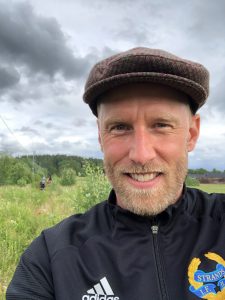
Patrik Hedman – Founder Hej Aktivitet
11:00 CET – 12:00 CET
My name is Patrik Hedman and I am the director and founder of Hej Aktivitet (Hi Activity!). In our organisation we have six activities that all aim to create a more meaningful existence through different activities.
Through our activities, we strive for people to have improved physical and mental health and also for our activities to contribute to a better and safer society.
I live in Hudiksvall (Sweden) and have two children.
Improving distribution of fresh food at food banks

Liesbeth Bouwmeester – Supply Chain Professional at NRG-Office – Graduated from the University of Groningen – Master Technology & Operations Management
12:00 CET – 13:00 CET
Recently, demand for fresh food at food banks is increasing while supply lags behind. Therefore, the focus is shifting to the supply of fresh food. Specifically, the limited supply of fresh food should be distributed as quick and fair as possible. A simulation study was conducted in order to design an optimized centralized planning of the pick-up days of local food banks at the regional distribution center with respect to total lead time. Furthermore, the fairness of distribution of three categories of fresh food among the local food banks was taken into account.
The Use of Shared Services In Logistics Clusters During Relief Activity in Response to Natural Disasters
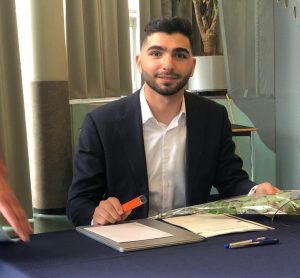
Maik Mati – Purchase Analyst at Intergas Verwarming B.V. –Graduated from the University of Groningen – Master Supply Chain Management
13:00 CET – 14:00 CET
Currently, logistics clusters operating in natural disaster zones find it a challenge to coordinate procurement, warehousing, and logistics activities with other humanitarian clusters. The purpose of my paper is to extend the shared services model to improve the coordinating capability of logistics clusters.
A two-stage, qualitative modeling methodology was adopted. During the first stage, an initial shared services model was developed based on secondary data analysis. During the second stage, this initial model was validated using primary data collected from 7 experts in humanitarian logistics. Semi-structured interviews were used as the primary data collection tool.
It was found that the constructs of a conventional shared services model including leadership, services/process, technology, and people management can be applied to humanitarian logistics clusters to enhance coordination of logistics activities. However, each of these constructs must contain specific elements to maximize coordination. For example, the shared services unit must comprise of a central coordinator or lead and representatives from all other humanitarian clusters. There must be representatives from the government, the military, and involvement from local leaders. These and other findings have been further discussed in the paper.
So far, the shared services model as a means to improve coordination has not been applied to humanitarian logistics clusters.
Contextual actors and factors that impact last-mile delivery decision-making and performance
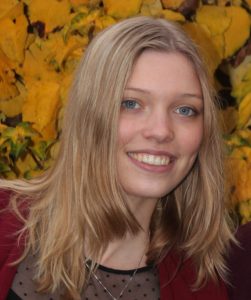
Lianne Runneboom – Logistics Engineer at VDL Enabling Technologies Group (ETG) Almelo – Graduated from the University of Groningen – Master Supply Chain Management
14:00 CET – 15:00 CET
Humanitarian organisations have to operate in different contexts, with influencing actors and factors, every time they decide to start an operation in an affected country. Humanitarian organisations cannot always achieve a reliable and timely last-mile delivery with safe and good quality products. They struggle with last-mile delivery challenges and are uncertain about what contextual actors/factors can influence the last-mile delivery decision and their performance. Also, in literature, the relationship between the humanitarian context and the last-mile delivery decision-making is not clear. A decision-making framework has been developed to promote the alignment between the humanitarian context, last-mile delivery decisions and performance.
Why is everyone talking about social entrepreneurship?

Ginés Haro Pastor -Social Entrepreneur, Founder of Impact Hub Málaga
15:00 CET – 16:00 CET
In this session you will be able to know examples of entities that are improving the world using the principles of social entrepreneurship, as well as learn about the main characteristics of these entities. What is the potential that social entrepreneurship has to change the world? how can it inspire you and your organisation? Come and join this session.
www.ginesharo.com
Twitter: @ginesharo
@Emprendedor_Soc
Social Innovation 4.0. as a key to build an inclusive society

Anna Zelno – Co-founder of Academy for Diversity and Innovation
16:00 CET – 17:00 CET
Diversity, equity and inclusion (DEI) has made it to the agendas of most CEOs of Fortune 500 companies, deans of the best universities in the world and thanks to United Nations’ The Sustainable Development Goals (SDGs) also to the political agendas of many governments. However, building an inclusive society should be an aim for each of us. During the presentation we will present the quadruple-helix model of cooperation, where stakeholders from the public, private, third sector and academia come together to solve important societal problems.We are going to share some best practices and inspire you to participate in and create these kinds of projects. We are also going to create a space to network with people from different sectors.
The money challenge - How the SocialFinanceLab brushes up your financial skills
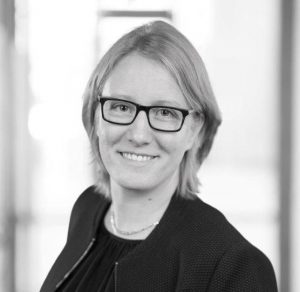
Iris Rickhoff – CEO of Domhan Vision
17:00 CET – 18:00 CET
The EU-funded SocialFinanceLab project aims to accompany social entrepreneurs on their way to financing their endeavour by promoting cooperation and exchange between social entrepreneurs, experts and investors. Through the digital approach of SocialFinanceLab, social entrepreneurs and their start-up advisors are supported in the financing phase, independent of location and time – start-up teams can learn from case studies and learning nuggets and find appropriate financial offers. Together with five other European partners, Domhan Vision as the project coordinator ensures that social finance for impact ventures is unwrapped by improving learning and training in this specific field.
Register here:
When register, you will receive an email with more information on how to join the online conference.
